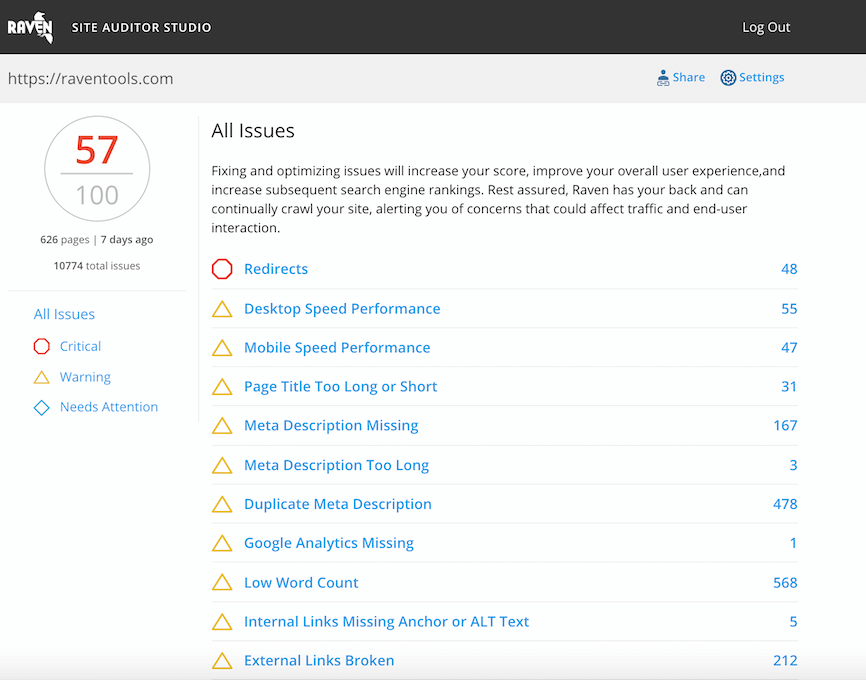You’ve seen the articles. SEO is dead, linkbuilding is dead – everyone is ready to bury SEO right along with bulky computer towers and link farms.
But SEO isn’t anywhere close to death.
Those stories simply perpetuate rumors in pursuit of the cheapest form of linkbait. Adding insult to injury, they seldom even result in interesting content. The panic-stricken titles usually lead into a tepid article about why panicking is a bad idea and how Internet marketing will live on.
What all these Chicken Littles are ignoring is what it really means to do SEO.
As with many acronyms, the term “SEO” has become an industry standard we rarely think about. When you do consider the term itself, search engines are what come to mind, with the optimization part falling by the wayside as self-explanatory.
But optimization is where the good stuff is – that’s the actual action of what we do.
What is optimization, anyway?
Perhaps we should look at the word more closely. It’s defined as an act, process, or methodology of making something:
as fully perfect, functional, or effective as possible.
When applied to search, this means that we are trying to make a website the best it can possibly be when it comes to being found by the right customers.
Maybe you think “perfect” for you and your client would be ranking No. 1 for all of your desired keywords.
But when optimizing for search engines, we have to think deeper than “What do robots detect?” Instead, we must think about who the search engines serve: humans.
If you need proof, note how good Google is at keeping the human principle in mind. Look at the many ways it tries to answer our questions faster: Fixing our grammar and spelling. Auto-finishing our questions. Using its Knowledge Graph tool to anticipate basic information we might be looking for in some cases we may not even have to click through to a page to get what we’re looking for.
In fact, with the new dominance of mobile devices, “search engines” as we know them are being omitted altogether in some searches. If someone is using their phone to search for a restaurant, they might use Yelp, Foursquare or another app that calculates their location and suggests options accordingly.
Optimization is immortal
Now, don’t panic just because you’ve spent a lot of time and money on SEO. All this means is that the focus on the “optimization” part of SEO is more important than ever – maybe even more important than the “search engine” part.
If you’re buying links in bulk, then that’s not going to help you in the search engines or on any other medium. But if you’re truly optimizing, then you haven’t been wasting your time.
Search is always evolving. As we expand into focusing on review sites like Yelp and Citysearch and location apps like Foursquare, we’re still optimizing. We’re thinking about the users who will be searching within our niche and providing information they’ll appreciate in the easiest way possible.
As long as you’re thinking about your audience, your optimization practices will easily transfer to however people are finding resources and recommendations. That’s why optimization can’t die.
Optimization is for humans
Here are some questions to ask yourself to make sure that your site is user-optimized, rather than just trying to game the search engine algorithms.
Content:
- What separates your content from the millions of other sites out there?
- Are you updating frequently?
- Does your content answer questions?
- Are you providing information people want to read?
Social media:
- Is your audience using the same social media platforms you are?
- Why would someone want to get social updates from you?
- Does your social presence draw people to your website?
- What makes your social media different from the info on your website?
- Are people engaging with you on social media?
Design:
- Is your site easy to navigate?
- Is your site pleasant to look at?
- Does your site convert well to mobile?
- Is it easy to find information on your site?
Reaching true SEO perfection
When we look at optimization, we must think philosophically. We must think like humans first and spiders second, always keeping our eye on what’s coming down the pike for both.
True SEO perfection is more than rankings – it’s a site where search engines and visitors find what they’re looking for. It’s a site with strong social signals and content worth sharing. Most importantly, it’s being able to prove and report a real effect on your client’s business.
It’s not about robots anymore – it never should have been. Instead of thinking about how to rise to the top of Google’s pages, make your site as perfect as possible in the eyes of your audience. Now that’s optimization.

Analyze over 20 different technical SEO issues and create to-do lists for your team while sending error reports to your client.




Great post, many users still don’t understand how Optimization is for humans not for search engine robots. Proper content built based on what users want it much more valuable than just any content you’ve SEO’d but there is no big demand for the topic.
i definitely agree, Patrick. Thanks for the comment!